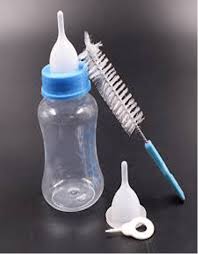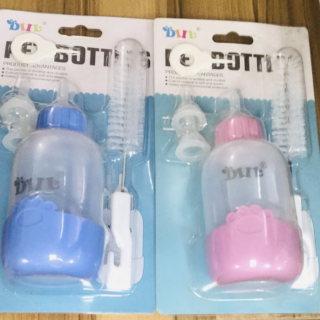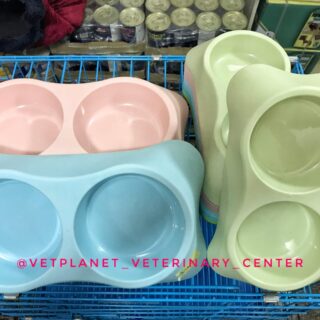Your cart is currently empty!

Single Product
Pet Feeding Bottle
Pet Feeding Bottle Pet Feeding Bottle: Newborn puppies are relatively immature at birth compared to many other mammals. Large breed puppies are less mature than small breed puppies. The period of time they spend being nursed by their mother (bitch) helps the newborn puppy transition from in utero nutrition to solid food. When puppies are…
Description
Pet Feeding Bottle
Pet Feeding Bottle: Newborn puppies are relatively immature at birth compared to many other mammals. Large breed puppies are less mature than small breed puppies. The period of time they spend being nursed by their mother (bitch) helps the newborn puppy transition from in utero nutrition to solid food.
When puppies are raised on their mother’s milk, their growth and health is influenced by:
- the nutrition of the mother during pregnancy and early lactation,
- the mothers overall physical health and behavior, and
- good neonatal care.
The first few days of a mother’s milk is known as colostrum. Colostrum is very high in protein and transfers important immune system elements. Whenever possible, newborn puppies should receive their mother’s milk as it sets the stage for normal immune system function and protection from disease.
If the mother is incapable of raising her puppies herself, the puppies are considered orphans and some important needs must be met in order to ensure their survival. These needs include appropriate heat, humidity, nutrition, elimination, sanitation, and social stimulation.
Fortunately, most orphaned puppies can be raised successfully with a bit of care and attention to detail. Using a logbook to track their development is a good place to start.
What should I track in a logbook?
Maintaining a logbook about the orphaned puppies does not need to be complicated. The intent is to simply keep track of how they are doing so you can identify if there are any potential concerns with their development.
Tracking their weights, milestones, and routines are key, so be sure to record details of when their eyes open. When their teeth begin to erupt, their food intake, and stool consistency.
TIP: Individual puppies must be identified in some way, so consider colored collars or nail polish on a few front toenails.
How often should puppies be weighed, and how much should they weigh?
The birth weight of each puppy should be recorded, and weight should be taken every day or two for the first four weeks of life. Starting in their fifth week, you can switch to weekly weigh-ins. A digital food scale with capacity up to 5 pounds works best for these measurements.
Puppies should gain about 5% of their current body weight per day during the first 4 weeks. This means that body weight may double by 8-10 days after birth and triple by the third week of life.





